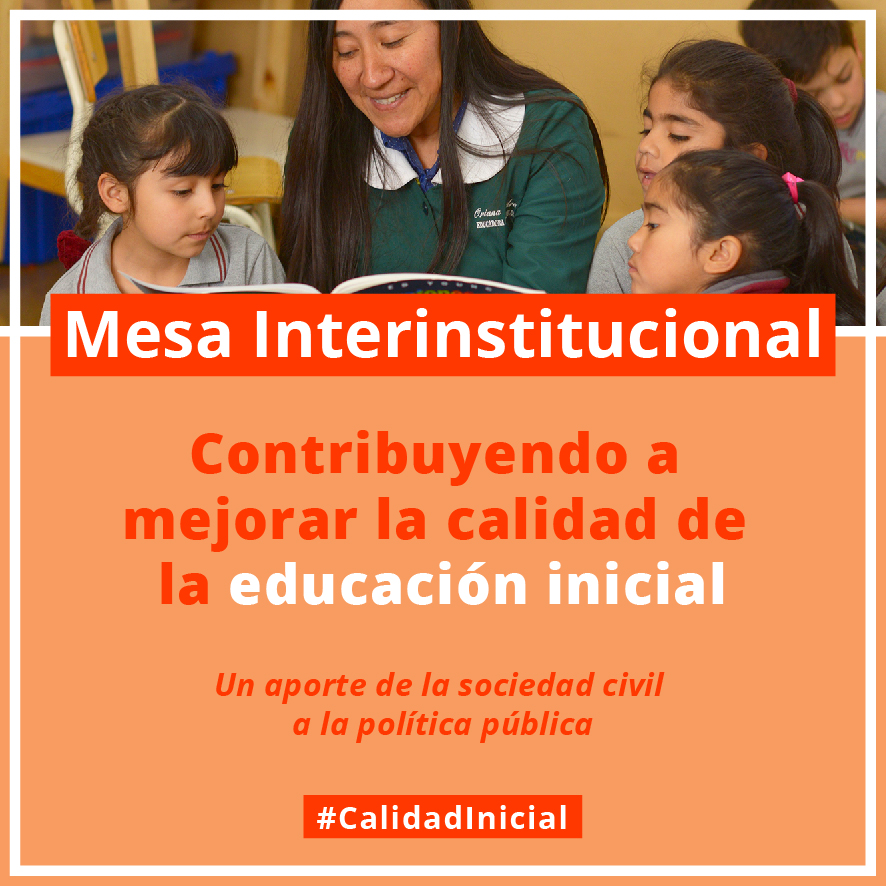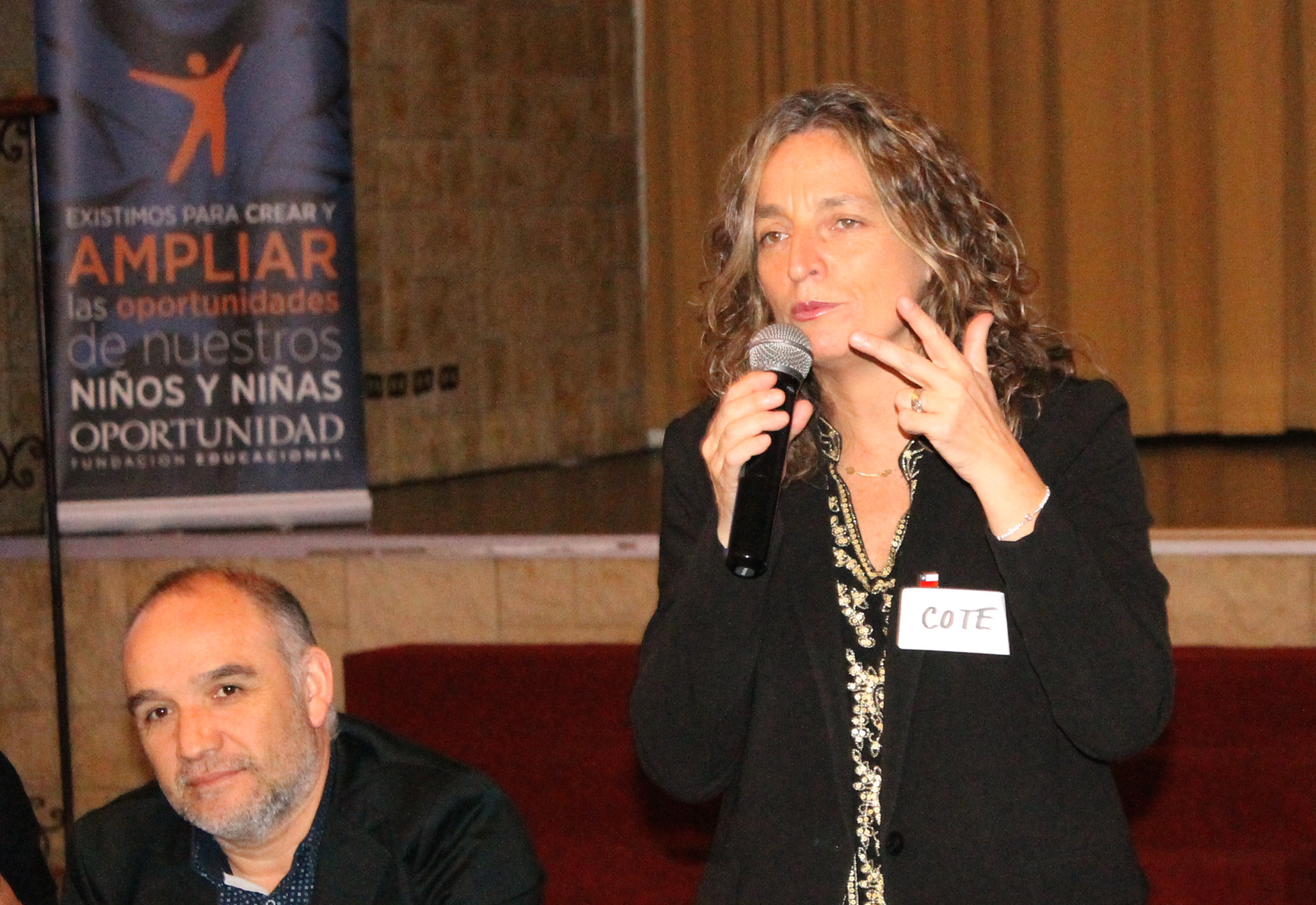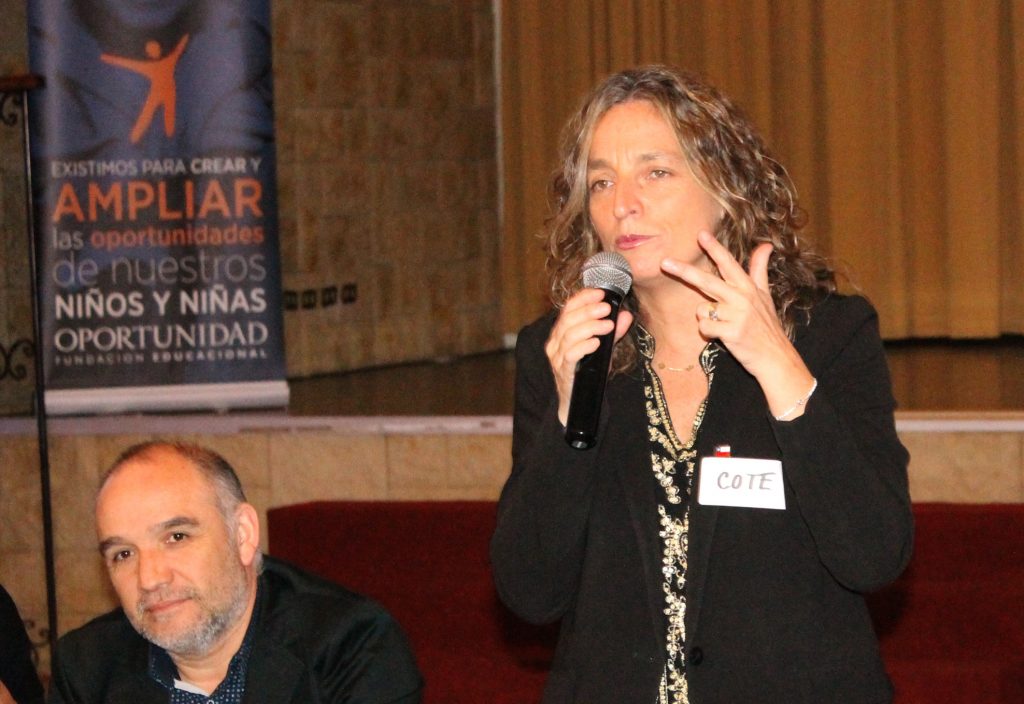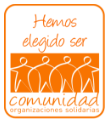
Organisations to submit proposals to the government to contribute to early childhood education
There are 24 institutions that joined together in an inter-institutional roundtable and worked for 6 months to develop a series of proposals and measures that seek to contribute to the improvement of the quality of early education processes in Chile.

On Monday 5 November, representatives of 24 civil society organisations related to early childhood education will meet with the Undersecretary of Early Childhood Education, María José Castro, to present proposals and concrete measures aimed at improving the quality of early childhood education.
The document contains recommendations in five key areas that directly affect the quality of early education processes: effective interactions; initial and continuous training of early childhood educators and technicians; pedagogical leadership; family involvement; and process evaluation. For each of these areas, a brief diagnosis and bibliographical discussion is presented, leading to concrete actions that could be implemented, some of them by the Ministry of Education, others by universities, professional institutes and technical training centres, and even by the educational establishments themselves, as appropriate.
Most countries, including Chile, have increased public spending to expand access to early education. However, as coverage increases, the central challenge for public policy is to find a balance in investment that improves structural aspects (m2 per pupil, number of pupils per teacher, among others), but also allows for progress in the quality of educational processes, which is ultimately what will define the formative and developmental experiences of children at an early age.
A few months ago, the Ministry was presented with the proposals of "The Initial Plan", which many of the organisations participating in this roundtable were part of, and which focused on access, quality and institutionalism. The document that we will present as a roundtable on this occasion focuses exclusively on the quality of early education processes. What we understand by quality education, how it is achieved, how it is measured, who are the actors involved, are some of the questions that this document answers with concrete proposals, complementing and deepening what was presented by El Plan Inicial to the Ministry of Education.
The "Mesa Interinstitucional de Calidad de los Procesos en Educación Inicial" was led by Fundación Educacional Oportunidad, with the active participation of more than 20 civil society organisations: Acción Educar, Centro de Estudios de Desarrollo y Estimulación Psicosocial (CEDEP), Centro de Estudios Montessori, Centro de Estudios Primera Infancia (CEPI), Centro de Justicia Educacional, Comité para la Infancia y la Familia, Corporación Emprender, Desafío Levantemos Chile, Educación 2020, Educa UC, Elige Educar, Fundación CAP, Fundación Chile, Fundación CMPC, Harvard University, Hogar de Cristo, Fundación Aprendiz, World Organization for Early Childhood Education, Pontificia Universidad Católica de Chile, Protectora de la Infancia, Tu Clase Tu País, Universidad Alberto Hurtado, Universidad Católica del Maule and Universidad de las Américas.
The document will be handed in on Monday 05 November at 12:30 p.m. at the offices of the Undersecretariat for Pre-school Education.
Accede al documento en este enlace https://fundacionoportunidad.cl/wp-content/uploads/mesa-interinstitucional-de-educacion-inicial.pdf







